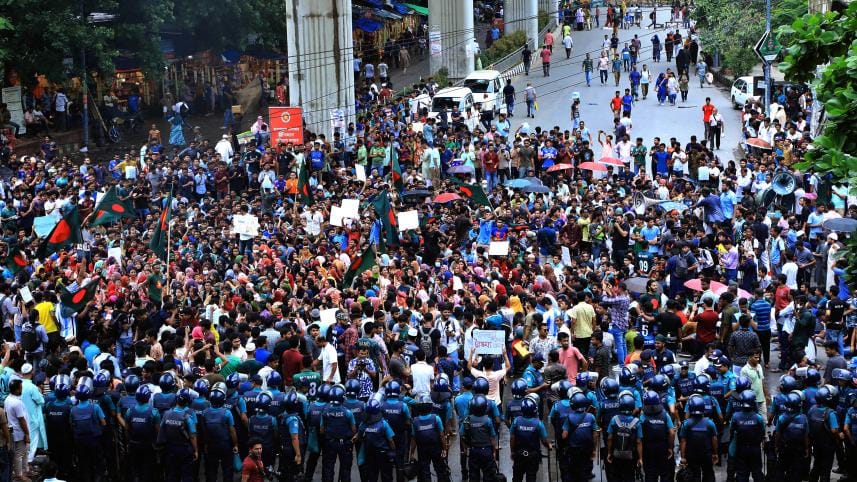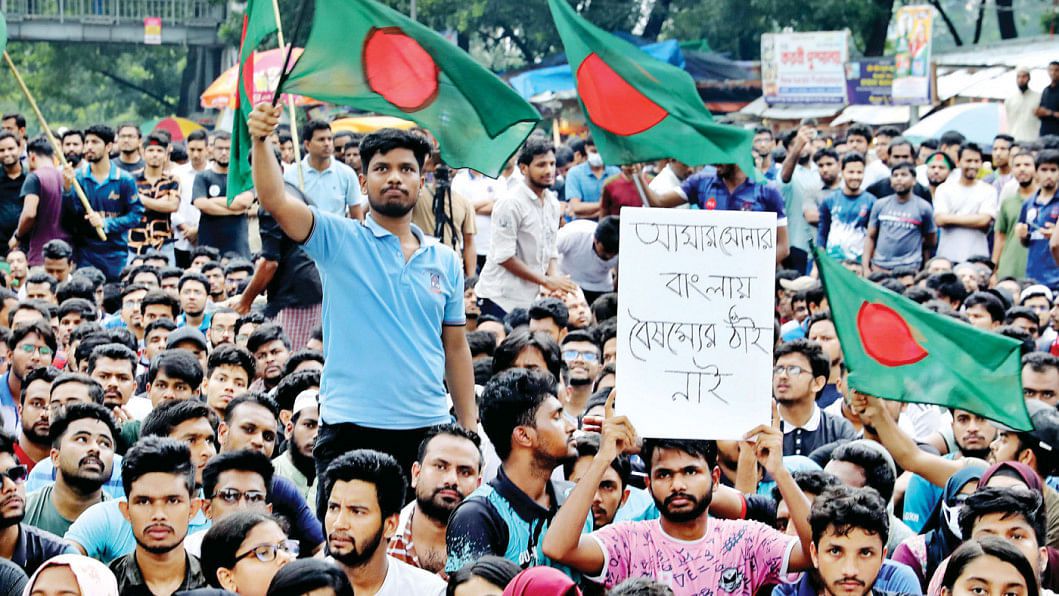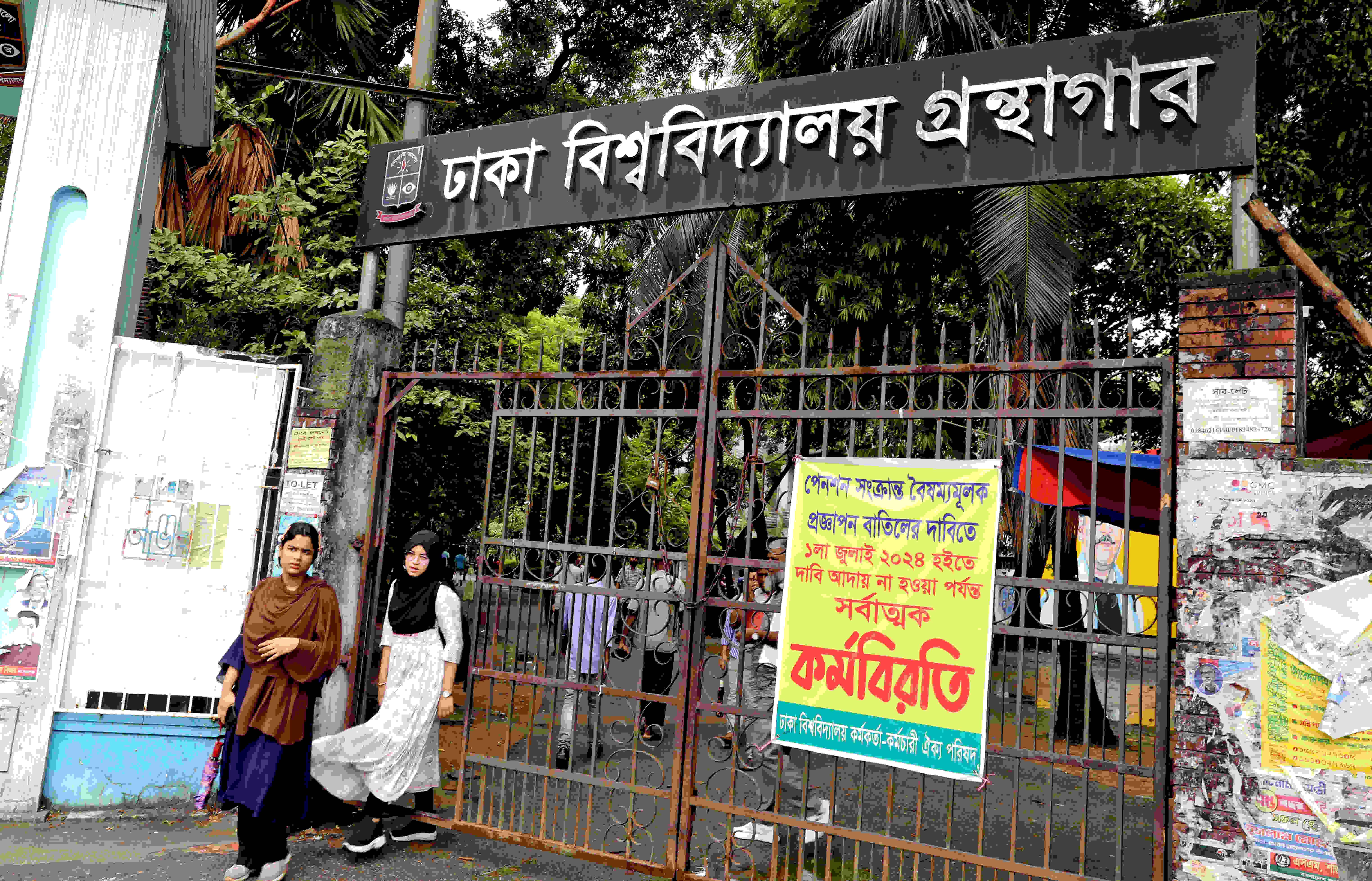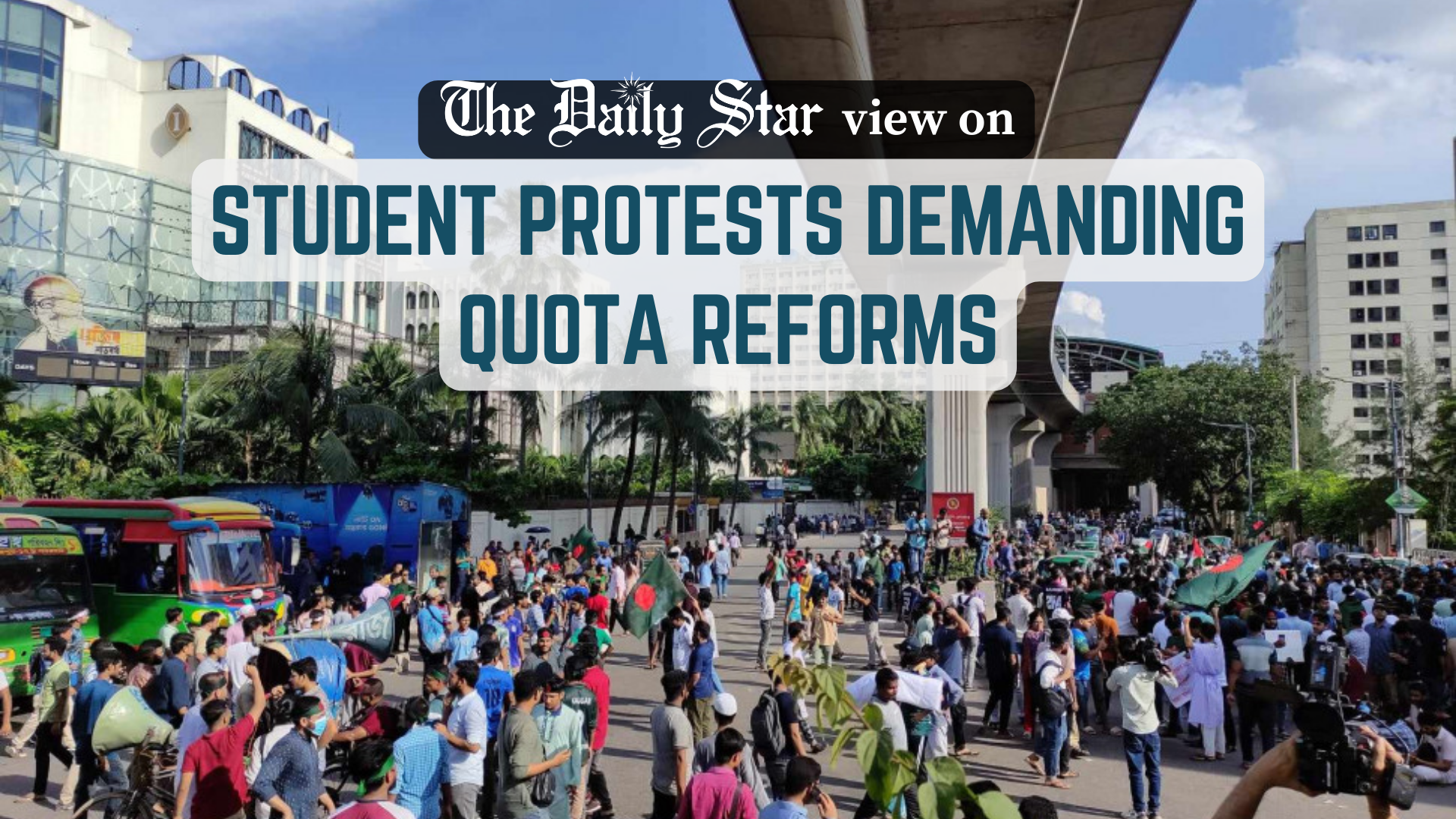From lecture halls to the streets: Universities submerged in dual protests

The monsoon rains lash against the paved streets of Dhaka University, but the downpour does little to dampen the fiery spirits on campus. Huddled under a sea of colourful umbrellas, thousands of students stand defiant, their voices rising.
What began as a localised protest in the heart of the capital has swiftly morphed into a nationwide movement. From Khulna University in the south to Rajshahi University in the north, students across Bangladesh are joining the chorus of dissent. Social media feeds are flooded with images and videos from campuses nationwide. In Dhaka, students have traded the comfort of dry lecture halls for the wet streets, their textbooks temporarily abandoned in favour of protest signs that run with ink in the relentless rain. As news of their stand spreads, it ignites similar actions nationwide. Students gather in solidarity in Chattogram, Sylhet, and beyond; their umbrellas are a colourful testament to their resilience and unity.
But this isn't just a student uprising. A parallel storm is brewing in faculty lounges and administrative offices nationwide. Professors and lecturers tasked with guiding the next generation find themselves locked in battle against a system they believe has failed them. It's as if the monsoon has washed away the thin veneer of normalcy, revealing the deep-seated frustrations that have long simmered beneath the surface of Bangladesh's academic world. Two distinct yet interconnected movements are unfolding, each threatening to reshape the foundations of higher education in Bangladesh. The students' grievances centre on the labyrinthine quota system that has long governed public sector jobs in Bangladesh, where 56 percent of government positions are reserved for various groups. It's as if the concept of affirmative action has been cranked up to eleven.
The students' demands are simple yet revolutionary. They want to tear down this quota tower, brick by brick, and build a new system where talent trumps all. They're calling for a return to a 2018 circular that promised a fairer shake.
But this isn't just about jobs. It's about a generation's hopes and dreams. These students envision a future where their hard work and abilities matter more than their family history or connections. They're fighting for themselves and the Bangladesh they want to see: meritocratic, fair, and full of opportunity.
On the other side of this academic coin, we find the teachers. These men and women have dedicated their lives to shaping young minds, only to be caught in a bureaucratic tangle. Their beef is with the "Prottoy Scheme"—a new pension system.
To understand their fury, you need to know that these educators have long felt like the forgotten cousins of the civil service family. They've clamoured for a separate pay scale for years, recognising their unique societal role. Instead, they got lumped in with everyone else in the 2015 pay scale revision. This new pension scheme makes them feel like they're being pushed further into the margins.
It's not just about money, though. It's about dignity. It's about feeling valued in a society that often pays lip service to education while treating educators as an afterthought. The teachers' protests might be less visible than the students' because of the smaller number of umbrellas and the higher number of closed-door meetings, but they're no less passionate. So here we are, a nation caught between two waves of protest, each threatening to overflow the banks of our higher education system. It's a crisis, yes, but it's also an opportunity. It is an opportunity to reimagine how we value merit, support our educators, and prepare the next generation for the challenges ahead.
The solutions won't be easy. Reforming the quota system means navigating a minefield of vested interests and historical obligations. Addressing the teachers' concerns requires fundamentally reconsidering how we value education. But the alternative—allowing this unrest to fester—is unthinkable. There's a palpable sense of déjà vu. Bangladesh has been at a crossroads where the choices will echo through generations. The question is: Do we have the courage to make the right choices? The students and teachers of Bangladesh have thrown down the gauntlet. It's time for the powers that be to pick it up. The future of a nation's education and perhaps the country itself hangs in the balance.
Let's hope wisdom prevails for all those young minds waiting to be shaped and all those dedicated educators ready to shape them. As the monsoon rains continue to fall, we're left wondering: Will these waters of discontent nourish the seeds of change, or will they wash away hope for another generation? Like the protests, the answer remains fluid and uncertain in the torrential downpour of Bangladesh's academic crisis.
Meherab Hossain is a young fellow of Oxfam, Bangladesh and a post-graduate student of sociology at Khulna University.
Views expressed in this article are the author's own.
Follow The Daily Star Opinion on Facebook for the latest opinions, commentaries and analyses by experts and professionals. To contribute your article or letter to The Daily Star Opinion, see our guidelines for submission.



 For all latest news, follow The Daily Star's Google News channel.
For all latest news, follow The Daily Star's Google News channel. 


Comments